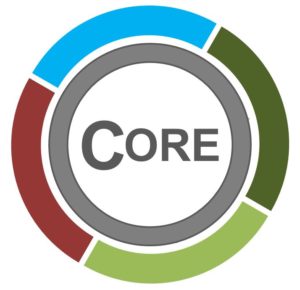
Findings believed to be critical or unexpected are communicated to a radiologist, oncologist or other responsible healthcare professional immediately
Provision of care
- The CAMRT Code of Ethics emphasizes the importance of protecting patient safety in professional MRT practice.1
- If, in the regular course of their duties, an MRT identifies or suspects a finding that would impact a patient’s immediate health and well-being (e.g., critical or unexpected findings), the MRT is responsible for communicating the finding to the patient’s radiologist, oncologist, or most responsible healthcare professional immediately.2–4
- All communication should be performed in a manner that respects patient rights and confidentiality.1
- Failure to communicate and/or respond to critical or unexpected findings can have significant repercussions for patients (e.g., progression of disease, death), health professionals (e.g., malpractice lawsuit), and organizations (e.g., inefficient use of resources).5–7
Communicating a finding
- Effective communication is a critical component of diagnostic imaging and therapeutic treatment.2
- An effective method of communication should 1) promote optimal patient care and support the referring healthcare provider in this endeavor, 2) be tailored to satisfy the need for timeliness, and 3) minimize the risk of communication errors.
- MRTs should be familiar with their provincial scope and standards of practice, and their facility’s policy and procedures for the communication of critical and unexpected patient findings.
- MRTs can identify gaps in workflows that may lead to mishandling critical or unexpected findings. MRTs can contribute to developing or enhancing policies and procedures to ensure findings are received by someone responsible for the affected patient’s care in a timely manner.
- It is important that the results are communicated to the radiologist, oncologist and/or most responsible healthcare professional directly4:
- Obtain acknowledgment of receipt of the information to avoid situations where communications are lost or delayed (e.g., in person, by phone, or electronically)
- If the needed healthcare professional is not on duty, then the healthcare professional directly responsible for the patient at the time must be alerted
- If neither individual is available, the patient should be transferred to the care of an emergency department
- In a critical finding scenario, the patient remains under supervision until a physician is consulted
- Communicate to the patient that they will be directed for follow-up care without imparting specific information on their diagnosis/prognosis:
- For example, “We’d like you to remain here while your images are being reviewed”
- Timely receipt of critical or unexpected findings can be more important than the method of delivery. However, proper documentation must occur as soon as possible after the initial communication.2
Documenting a finding
- The timeliness of reporting a finding varies with the nature and urgency of the clinical problem.8 The written final report should be made available in a clinically appropriate and timely manner.3
- The finding and subsequent contact is documented2,3:
- Reason for alerting radiologist, oncologist or other most responsible healthcare professional
- Date and time of the test, procedure, treatment associated with the finding or date and time of the finding
- Person contacted regarding the finding, with time of contact
- Inclusion of other relevant information required by the healthcare professional to support clinical decision-making
References
- Canadian Association of Medical Radiation Technologists. Member code of ethics and professional conduct. CAMRT. Published November 2015. Accessed June 1, 2023. https://www.camrt.ca/mrt-profession/professional-resources/code-of-ethics/
- American College of Radiology. ACR practice parameter for communication of diagnostic imaging findings. Published online 2020. Accessed January 10, 2022. https://www.acr.org/-/media/acr/files/practice-parameters/communicationdiag.pdf
- Canadian Association of Radiologists. CAR Standard for Communication of Diagnostic Imaging Findings. Published online September 25, 2010. Accessed January 10, 2022. https://car.ca/wp-content/uploads/Communication-of-Diagnostic-Imaging-Findings.pdf
- Royal College of Radiologists. Standards for the communication of critical, urgent and unexpected significant radiological findings. Published online 2016. Accessed January 10, 2022. https://www.rcr.ac.uk/system/files/publication/field_publication_files/bfcr164_failsafe.pdf
- NORCAL Insurance Company. Healthcare Communication: Case Studies and Best Practices for Communicating Critical Findings. Knowledge Library. Published June 24, 2021. Accessed January 10, 2022. https://www.norcal-group.com/library/healthcare-communication-case-studies-and-best-practices-for-communicating-critical-findings
- Raskin MM. The Perils of Communicating the Unexpected Finding. J Am Coll Radiol. 2010;7(10):791-795. doi:10.1016/j.jacr.2010.03.006
- HealthManagement.org. Radiologists risks in communicating unexpected findings. HealthManagement.org. Accessed January 10, 2022. https://healthmanagement.org/c/imaging/news/radiologists-risks-in-communicating-unexpected-findings
- Berlin L. Communicating Nonroutine Radiologic Findings to the Ordering Physician: Will (Should) Information Technology–assisted Communication Replace Direct Voice Contact? Radiology. 2015;277(2):332-336. doi:10.1148/radiol.2015150516
